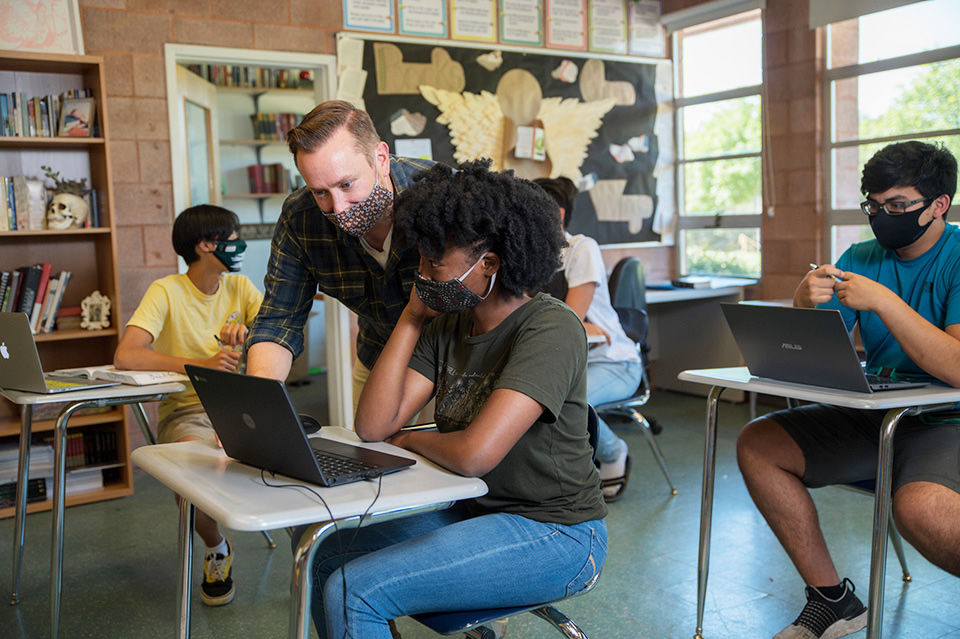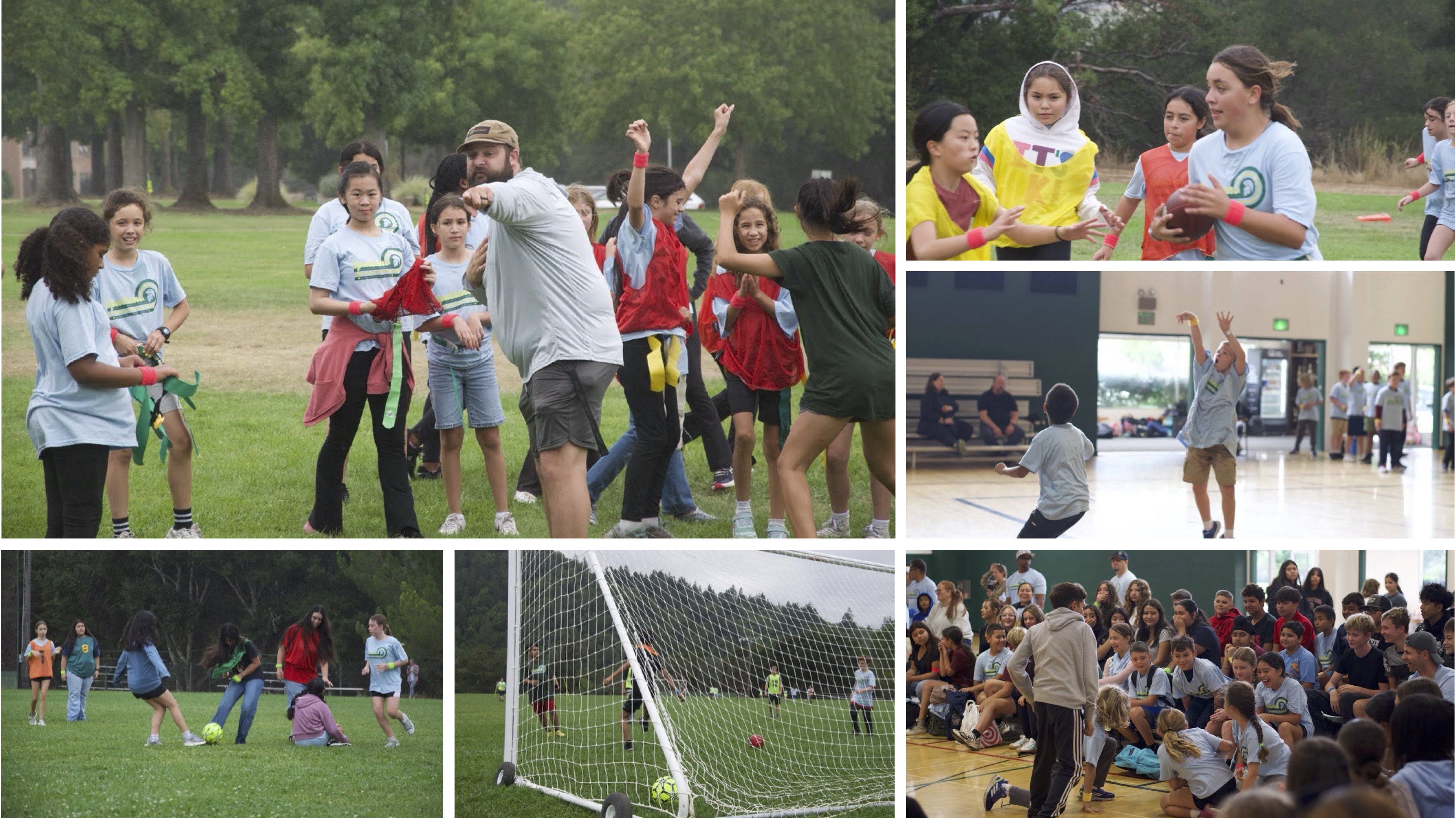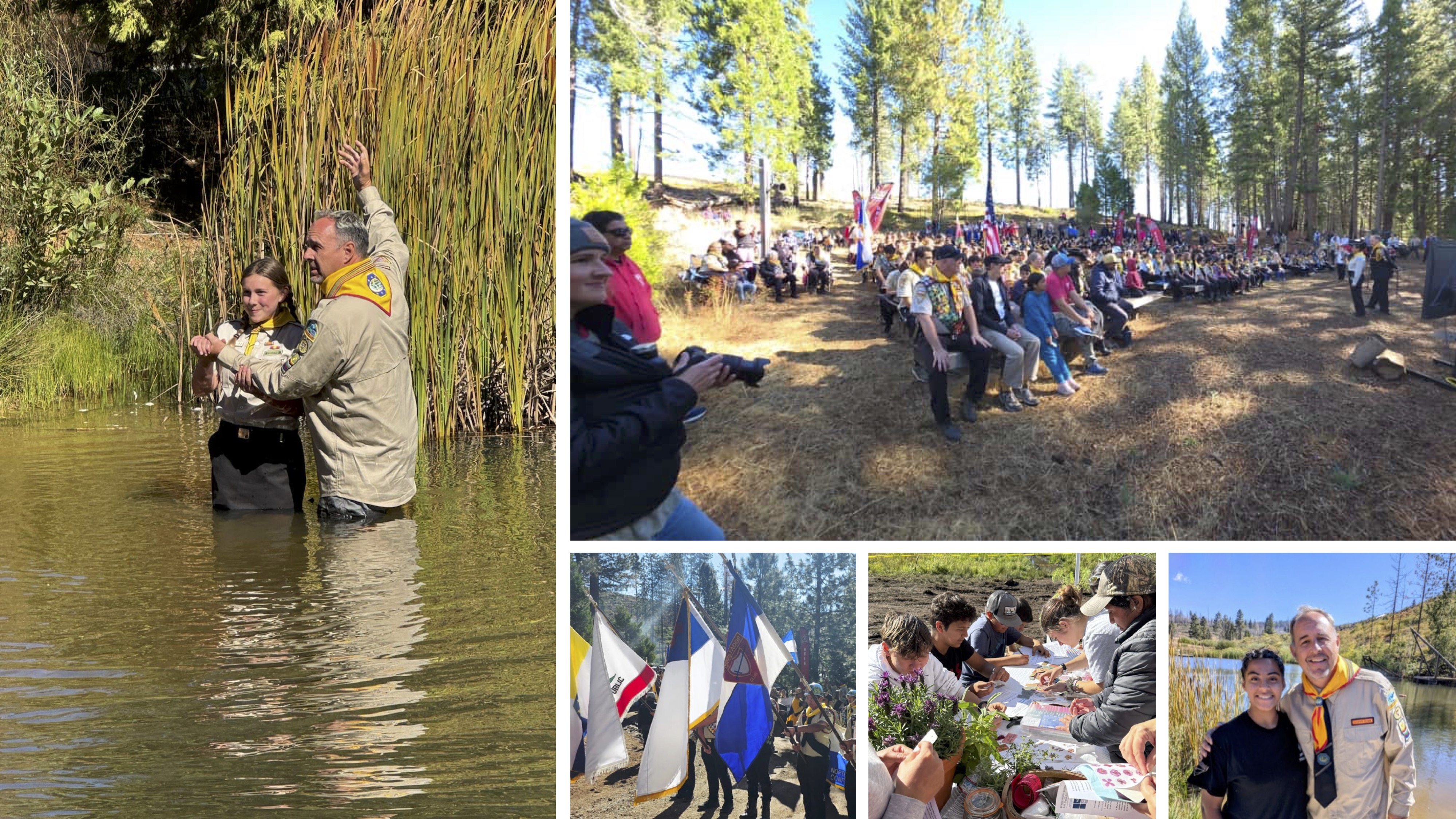By Rika Meyer and Nick Sigler
Teachers in all grades are observing varying levels of learning loss in students after an entire year of instruction online. At Rio Lindo Adventist Academy, new students who attended a public school the previous year have demonstrated that their knowledge is not at grade level. A record four new students are repeating a grade this year after not receiving credit for last year’s high school classes.
One surprising aspect of learning in a COVID world is demonstrated by Rio’s freshman class. This class of 25 students has overwhelmingly taken ownership of their learning and turned their challenges into resilience as they find intrinsic motivation that we haven’t seen before in a freshman class. The freshman class also has a record high number of students who had previously attended an Adventist school—with 22 out of 25 coming from Adventist education, versus about half of all other new students, who have previously attended a public school.
English teacher Nick Sigler (pictured above) explains:
“At the end of most units, I have my students complete a reflection survey. This wrap-up assists them in taking what they learned about the content, the educational process, and themselves and applying it to future subject matter. My hope is always that they will grow both in their knowledge and gain confidence in themselves as students. The comments usually run the gamut: ‘I wasn’t interested in this subject,’ ‘Assign less reading,’ ‘I think I did pretty good.’ This is all normal teenage perspective on school and studying.
“However, this year (and the previous 18 months) has elicited a new perspective from my students that I haven’t seen before. When I assigned the first unit reflection, the comments by and large exhibited a more determined tone than I have ever seen before in my years of teaching. Students commented: ‘I know I can do better and I want to try harder this unit,’ ‘I’m enjoying reading so much more now,’ and ‘I am going to spend more time preparing for class.’
“Two characteristics of this point of view jumped out at me. Number one: their comments were ‘I’ focused. Then took ownership of their efforts and acknowledged what they each individually had put into their unit. If they had not done as well as they could have, they owned their mistakes. Which leads us to number two. These comments exhibited a growth mindset. The growth mindset is an indicator of success because it demonstrates the person is looking at obstacles as opportunities. It is a brave resilience that shows their ability to grow in the face of struggle.
“I believe this resilience is a product of what all our students have gone through this last year and a half. Our Rio students faced school as they have never known it before; they have been ingenious about how to make their lives work in a quarantined existence; they have had to pivot at a moment’s notice. And yet through all of it, they can still see the possibilities for growth and improvement.
“I am hopeful. If a student body can see their own potential, take ownership of their mistakes, and set goals for themselves, then the future of Rio Lindo, our country, and our planet looks like a place we all want to be.”
————————-
Rika Meyer is Rio’s vice president of marketing, admissions & development.
Nick Sigler is Rio’s English teacher.




